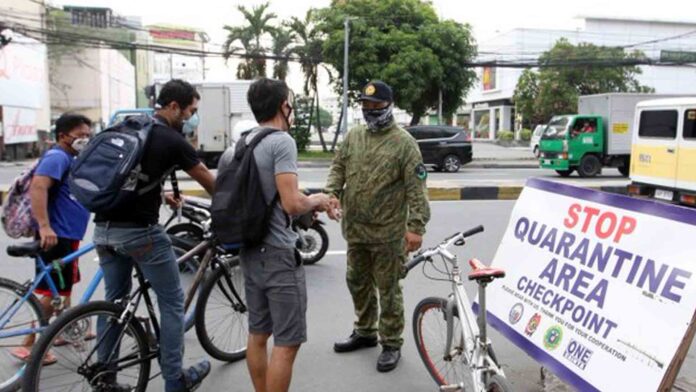The Inter-Agency Task Force for the Management of Emerging Infectious Diseases (IATF-EID) will discuss the possible revisions to the list of “do’s and don’ts” while the country is under community quarantine, Malacañang said on Thursday.
Presidential Spokesperson Harry Roque issued the statement, a day after Quezon City Mayor Joy Belmonte said quarantine classifications are already “obsolete” and no longer helpful.
Responding to Belmonte’s remarks, Roque said the implementation of community quarantine is still necessary, considering that the country is still grappling with the coronavirus disease 2019 (Covid-19) pandemic.
“So by and large, while we appreciate the suggestion of Mayor Joy Belmonte, perhaps what we will do in the IATF is to simplify the do’s and don’ts for the different regimes as we further reopen the economy,” Roque said in an online press briefing from Dumaguete.
Roque said the government needs to continue imposing quarantine restrictions because Covid-19 remains a serious threat to public health.
“From the point of view of the IATF, we need to tell the people that number one, the pandemic is still ongoing, that there is still a crisis, and that there is still need of a quarantine because this is a pandemic,” he said.
Roque, nevertheless, ensured that further easing the quarantine rules would enable more sectors to resume operations amid the pandemic.
It was on March 15 last year when President Rodrigo Duterte placed Metro Manila under the strictest enhanced community quarantine (ECQ). The following day, Duterte expanded ECQ over the entire Luzon.
Duterte eventually decided to impose a more relaxed community quarantine to revive the country’s economy.
The more relaxed general community quarantine (GCQ) has been imposed in Metro Manila, Apayao, Baguio City, Kalinga, Mountain Province, Batangas, Tacloban City, Iligan City, Davao, and Lanao del Sur until March 31.
The rest of the country stays under the least restrictive modified GCQ (MGCQ).
Managed ‘very well’
Roque reiterated that the Philippines is doing “very well” in handling the Covid-19 crisis.
He said the government has been able to contain the spread of Covid-19 in the country with a low mortality rate.
“We have been managing the Covid-19 very well. Ang importante po, nababawasan po natin ang mga namamatay at handa po tayong gamutin ang mga magkakasakit nang malala (What’s important is we have a low mortality rate and we are ready to treat severe Covid-19 cases),” Roque said.
To further intensify the Philippines’ Covid-19 response efforts, Roque stressed the need to improve the contact tracing system in the country.
“Tracing will enable us to isolate the close contacts para maiwasan ang pagkalat (to avoid the further spread of the Covid-19). An area for tremendous improvement will be the tracing, the use of the tracing app at saka yung pagtaas ng mga numero na nati-trace (and the hiring of more contact tracers),” he said.
On Monday, Roque also described as “excellent” the government’s response against Covid-19. (PNA)






